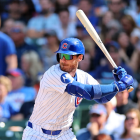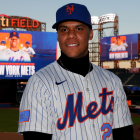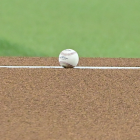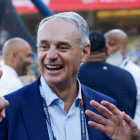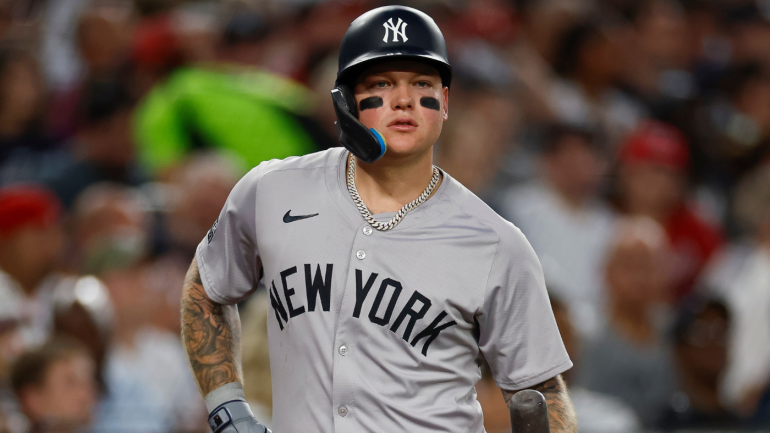
Although nearly a week has passed since the New York Yankees opted against including outfielder Jasson Domínguez in their September call-ups, it continues to be a polarizing topic. To wit, general manager Brian Cashman was asked about Domínguez and his situation on Friday, ahead of New York's series with the Chicago Cubs.
Cashman explained his thinking on Domínguez by pointing at two factors: playing time and winning probability.
Foremost, Cashman said that Domínguez needs to play every day, a fair point given that he's a 21-year-old who is unlikely to gain much developmentally by sitting on the bench, no matter his assignment. Where Cashman will draw backlash is with his assertion that the team feels veteran Alex Verdugo gives them a better chance of winning right now. That's an important consideration given the Yankees entered Friday a half-game back of the Baltimore Orioles in the American League East race.
Verdugo, 28, is in the midst of the worst season of his career. He entered Friday hitting .235/.293/.359 (83 OPS+) with 11 home runs and a stolen base. His topline performance has trended down as the year has burned on, with his .610 second-half OPS representing a 60-point decline from his play during the first half.
Domínguez, comparatively, has hit .318/.379/.519 with 11 home runs and 16 stolen bases in 55 games across three minor-league levels.
Those surface-level statistics suggest Domínguez is clearly an upgrade over Verdugo, so what is Cashman and his front office seeing that makes them feel otherwise? There's no way of knowing for sure -- shy of Cashman divulging more than he would prefer about either the Yankees' internal models or two of his players -- but a look at Verdugo and Domínguez's ball-tracking data does provide a little added context:
| Player | Exit velocity | 95 mph+% | 10-30 degrees launch% | Barrel% |
|---|---|---|---|---|
Verdugo (MLB) | 88.2 mph | 36.3% | 29.1% | 15.9% |
Domínguez (AAA, MLB) | 88 mph | 39.6% | 30.2% | 19.4% |
Before anyone yells at us: we are well aware that more goes into hitting than these metrics. At the same time, they do have value and teams absolutely use them to inform their decisions. (Hitting the ball hard has never been a bad thing.) It's quite possible that the Yankees have looked at these numbers (and others) and decided that the gap between Verdugo and Domínguez is not as big as it appears.
If that's the case -- and again, we can't say for sure that it is -- you can fill in the blanks from there on why the Yankees have kept Domínguez away from the majors. Put simply, they would likely view it as being in his best long-term interests to keep playing in Triple-A rather than being installed during a high-leverage situation.
That doesn't necessarily mean the Yankees are making the right decision. It's quite possible that Domínguez would outplay Verdugo, perhaps by a fair margin, if given the opportunity. Again, there are important offensive skills not captured in the table above. In turn, that would improve New York's chances of overtaking the Orioles in the East, which is the whole reason this is even a topic of conversation.
Still, whenever a team makes what looks like a self-sabotaging decision, it's worth wondering if there's more to it than meets the eye. In this case, the answer is "maybe."










